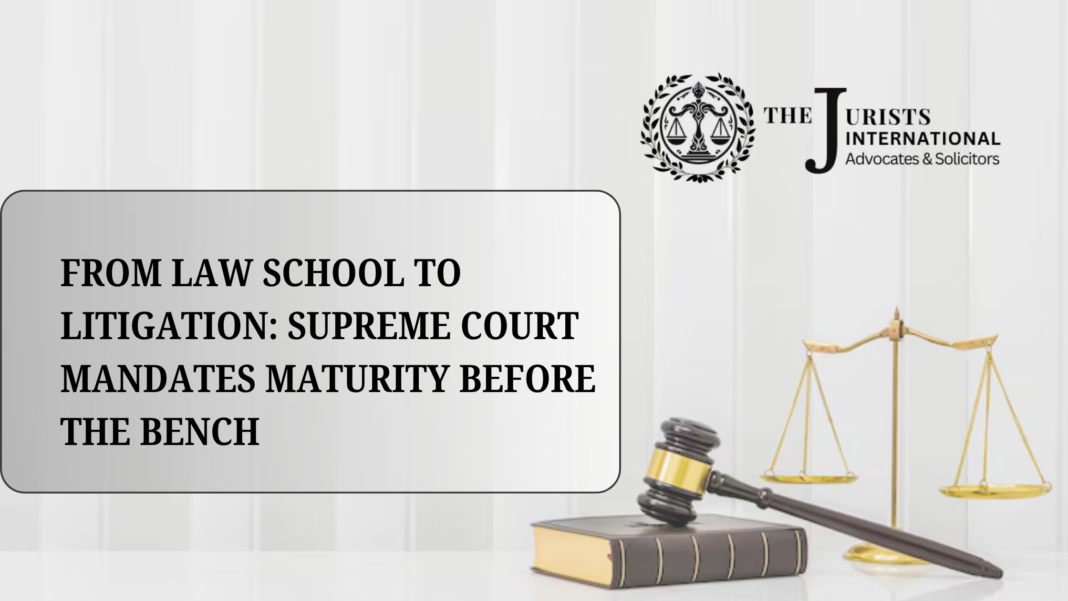In a landmark move, the Supreme Court of India has reinstated the three-year minimum bar experience requirement for civil judge aspirants. Previously struck down by some High Courts for limiting fresh law graduates, the Apex Court has now ruled that practical legal experience is not optional, but essential, for dispensing Justice.
The original intent of this rule was to ensure judges had real-world exposure to courtroom processes, client interactions, and procedural nuance. However, bypassing this requirement in several states led to the appointment of very young judicial officers, who are strong in theory but often lack the grounding that litigation cultivates.
The judgment rightly underscores that Justice is not mechanical. Judges must grasp human behaviour, ethical complexity, and procedural subtleties—skills gained only through firsthand litigation. As the Court stated, understanding how courts function, how arguments are crafted, and how evidence unfolds is vital—and cannot be learned from books alone.
While the intent is noble, this shift brings genuine concern:
a. Economically weaker aspirants may struggle during the unpaid or underpaid early years of practice.
b. Women, especially those from rural backgrounds, may face socioeconomic barriers that delay their entry into stable roles.
The legal profession remains notoriously under-regulated for young lawyers, with minimal support or structure. To make this reform inclusive and effective, supporting mechanisms are crucial, such as
a. Stipendiary Fellowships for junior litigators to sustain themselves through the mandated practice period.
b. Minimum wage regulations for chambers, so practice is accessible to all, not just the privileged.
c. Judicial Apprenticeship Programs to ensure consistent training and readiness for the bench.
The verdict pronounced by the Honourable Court is a progressive stride towards elevating the judiciary’s maturity and depth. It affirms that judging isn’t just about law—it’s about life, and those entrusted with Justice must first live its daily grind. But reform must not come at the cost of equity.
If we demand experience, we must provide the means to acquire it.
What is essential is that the robe must be earned, not expedited. But let us not forget—the journey must remain accessible to all, not just those with privilege or resources.
After all, “Justice demands experience. But Justice also demands inclusion.”
From Law School to Litigation: Supreme Court mandates maturity before bench



